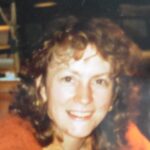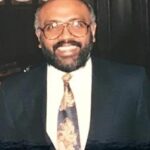Many people have contributed to the WUS at 100 book and we are thankful to them all for their hard work. Choose a contributor below to see their articles.
Peter Fensham was emeritus professor of Science Education at Monash University, after 25 years as the first such appointee to that position in Australia. Previously, he was reader in Physical Chemistry at the University of Melbourne. In addition to chairing WUSA, he convened a series of lectures to recognise the 25th anniversary of the Universal Declaration of Human Rights, published as a book titled Rights and Inequalities in Education, that became foundational for the Commonwealth Schools Commission in the 1970s. Involved with science teachers in every state, he became the first nationally appointed president of the Australian Science Teachers Association in 1971. He has been a leader in research into science education, best known for his seminal paper ‘Science for All’ in 1985. In the early 1970s he was the Australian participant in the UNESCO/ UNEP meetings that established Environmental Education internationally and was, with others, instrumental in establishing the Australian Association for Environmental Education in 1981. He has also worked in many countries overseas, both developed and developing. Sadly, he died in August 2021.
Professor Dr. Peter H. Katjavivi is a Government Chief Whip in the Namibian National Assembly (since 2010). He was politically active within the Namibian liberation struggle and was SWAPO Representative for the UK and Western Europe (1968-76) and SWAPO Secretary for Information and Publicity (1976-9). He did his Master’s degree at Warwick University (UK) and his DPhil at St Antony’s College Oxford, researching and writing about nationalism in Namibia. He was a Member of the Constituent Assembly that drafted the Namibian Constitution in 1989 and the National Assembly inaugurated in March 1990. He was founding Vice-Chancellor of the University of Namibia (1992-2003). He was Namibian ambassador to Belgium, The Netherlands, Luxembourg and the European Union (2003-6); ambassador to Germany (2006-8); and Director General of the National Planning Commission (2008-10).
Ricardo Lagos was President of Chile from 2000 to 2006. He studied law at the Universidad de Chile from 1954 to 1960 and received his doctorate from Duke University. After working at the Faculty of Economics, he was appointed Secretary General of the Universidad de Chile in 1969. Augusto Pinochet's coup d'état forced him into exile in 1973. He then worked for the UN until 1978, when he returned to Chile on its behalf to work for the International Monetary Fund. In the same year, he also took on an economics professorship in Santiago and became director of the Latin American Faculty of Social Sciences. In the 1980s, Lagos was among the leaders fighting for the reintroduction of democracy in Chile. He led the Socialist Party, increasingly became the undisputed leader of the opposition to the Pinochet government, and astounded contemporaries by calling out Pinochet on live TV in 1988, vehemently opposing the continuation of the military dictatorship with the “no” campaign. He was elected Chile's second socialist president after Allende in the December 2000 general election. In 2001, Lagos convened a government commission to investigate the situation of political prisoners under the Pinochet dictatorship and their torture. During his term as president from 2000 to 2006, he had a great reputation and popularity among the population. In 2007, the UN appointed him as special envoy for climate change.
Richard Taylor came to the WUS International General Secretaryship in 1975 from Oxfam UK. In Geneva he was particularly involved with the Southern Africa programs and visited projects in the South and also Australia. He went from WUS in 1981 to the UNHCR, then to the United World College in London, then briefly back to Oxfam to head their refugee programme in Goma, Eastern Congo, then to Brussels as the coordinator of the EU programme to build civil society in the Baltic states, Bulgaria and Romania. From 2004 to 2012 he was Chairperson of Asylum Welcome in Oxford.
Dr. Robin Burns was a member of the WUS Australia national committee from 1965 to 1969. She was the Australian delegate to the international general assemblies in 1966, 1968, 1970, 1972, 1974 and 1978 and member of the international executive from 1972 to 1976. Her PhD topic on development education grew from her WUS involvement and she taught that and related topics in a 27-year academic career in Comparative Education. She then moved on to Women’s Studies and Public Health. Her final research project was a field study of scientific work in remote locations: Antarctica, the Namib Desert, Uzbekistan and the Altai Republic.
Roger Eggleston began his WUS career as a technical officer in 1965, and from 1968 to 1973 he was Associate Secretary for Latin America. Between 1973 and 1988 he moved to WHO positions in Copenhagen, New Delhi and Geneva. His last position was an elected one at the secretariat which supported the work of the inter-agency coordinating body where he was responsible for introducing policy changes affecting working conditions across the UN system. He is now retired and living in England.
Roger Roy participated as a student in the WUS Canada international seminar to Algeria in 1964 and from 1970 to 1974 was WUSC’s Executive Director. He went on to lifetime work in international affairs, including as policy advisor to the UNDP in New York. Other assignments have been with the Inter-Parliamentary Union and as senior advisor at the Asia Pacific Foundation of Canada and the Commonwealth of Learning. He has subsequently been the first voluntary Executive Director of the Native Brotherhood Working Skills Institute.
In 1980, in 1982 Saman became Secretary of WUS at the University of Moratuwa and in 1984 Vice President of WUS Sri Lanka. After attending the Nantes Assembly, he moved to Germany for further study under the mentorship of WUS Germany. His WUS involvement included establishing a WUS International student network in 1991. He is currently a Professor of Civil Engineering at the University of Melbourne, Australia.
Sarah Buxton was a member of the WUS UK Africa Section from 1979 to 1991. Here she developed skills as a caseworker, and as a qualified social worker subsequently worked in refugee fostering in London, and at the Befriending Project of the Medical Foundation for the Care of Victims of Torture. She was employed and also did volunteer work in Sydney in the 2000s, with organisations providing services to newly arrived refugees and asylum seekers. She currently chairs the Trustees of the charity ReConnect.
Initially a WUS scholarship holder from South Africa, Saths Moodley became the founding executive director of WUS Ireland, 1983 to 1992. In 1992 he became the director for the Centre of Conflict Resolution at Wits University and served a special advisor to the government of South Africa after the first democratic elections there.



















